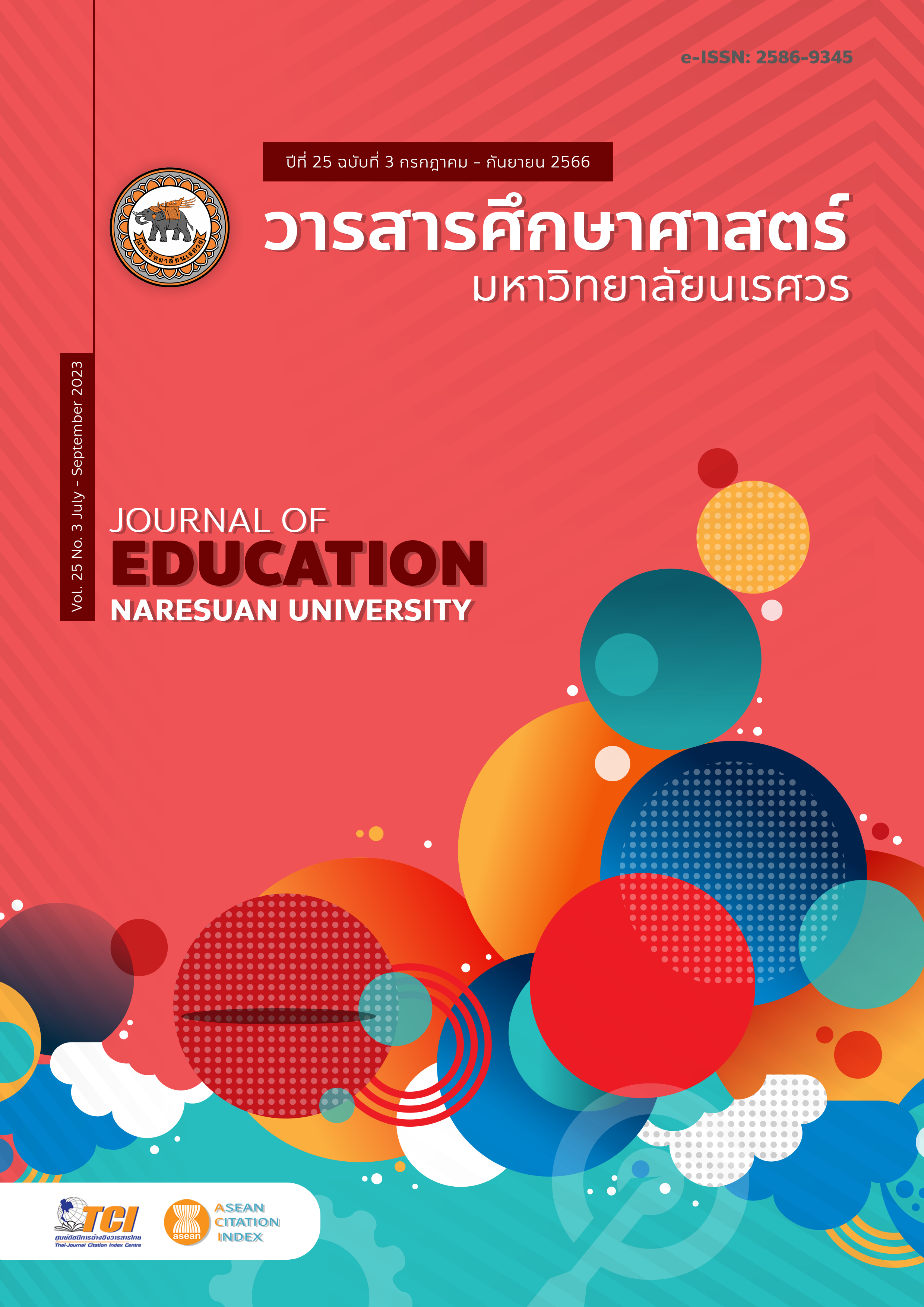THE EFECT OF A VIRTUAL FIELD TRIP WITH COMMUNITY - BASED LEARNING TO ENHANCE CIVIC ENGAGEMENT OF UPPER SECONDARY SCHOOL STUDENTS การจัดกิจกรรมการเรียนรู้โดยใช้รูปแบบการจัดการเรียนรู้นอกสถานที่เสมือนร่วมกับการจัดการเรียนรู้โดยใช้ชุมชนเป็นฐานเพื่อส่งเสริมความรู้สึกยึดมั่นผูกพันในความเป็นพลเมืองของนักเรียนมัธยมศึกษาตอนปลาย
Main Article Content
Abstract
The purposes of these research were 1) to study effect of virtual field trip with community-based learning to enhance civic engagement and 2) to compare satisfaction of students using virtual field trip with community-based learning. The sample were 111 upper secondary school students by 8 weeks of learning. The experimental instruments were learning website and lesson plans. the data collection instruments a comprised: Civic engagement test and Student’s satisfaction toward the model test questionnaire. The data were analyzed by using means stand activation and T test. The research results were as followed: the experimental result indicated that the subjects had civic engagement post-test means score higher than pre-test at .05 level of significance and the satisfaction of students using virtual field trip with community-based learning model was at high level at .05 level of significance.
Article Details

This work is licensed under a Creative Commons Attribution-NonCommercial-NoDerivatives 4.0 International License.
The owner of the article does not copy or violate any of its copyright. If any copyright infringement occurs or prosecution, in any case, the Editorial Board is not involved in all the rights to the owner of the article to be performed.
References
Arasaratnam-Smith, L. A., & Northcote, M. (2017). Community in online higher education: Challenges and opportunities. Electronic Journal of e-Learning, 15(2), 188-198.
Bureekul, T., & Sangmahamad, R. (2012). Values, culture, and thai demotic temper. Bangkok: Department of Research and Development, King Prajadhipok's Institute. [in Thai]
Dorn, P.T. (2018). Civic Engagement of Thai adolescents: Scale an Integrative Learning Program Development (Doctoral dissertation). Bangkok: Srinakharinwirot University. [in Thai]
Harvey, H. L., Parahoo, S., & Santally, M. (2017). Should gender differences be considered when assessing student satisfaction in the online learning environment for millennials? Higher Education Quarterly, 71(2), 141-158
Intarasongkroa, W. (2010). The Student’s satisfaction towards lecturers of Ratchaphruek College in Phuket Technology College Center (Research report). Nontaburi: Ratchaphruek College. [in Thai]
Klaisang, J. (2018). Ubiquitous technology enhanced learning: the outcome-based learning design for 21st century learners. Bangkok: Chulalongkorn University. [in Thai]
Ministry of Education. (2020). Notification of Ministry of Education Re: Ministry Policies and Focus in Fiscal Year 2021. Retrieved May 23, 2021, from https://www.moe.go.th/backend [in Thai]
Ministry of Interior. (2017). Ministry of Interior Digital Operation Plan 2017 – 2022. Retrieved April 16, 2021. https://www.dga.or.th/wp-content/uploads/2022/02/Presentation-DGA-TRANSLATED-INTO-ENG-Vfinal.pdf [in Thai]
Rittikoop, W. (2018). Community-based learning: Effective pedagogy strategies for teachers in the 21st century. Graduate School Journal, 11, 179-192. [in Thai]
Sompoo, C. (2012). Learning outcomes of critical thinking by the method of virtual field trips of learning in social studies, religion and culture of lower secondary school (Master thesis). Pathumthani: Rajamangala University of Technology Thanyaburi. [in Thai]
Songkram, N. (2014). Field trip and virtual field trip for active learning. Bangkok: Chulalongkorn University. [In Thai]
Sriarunrasmee, J. (2009). Virtual Field Trip How to make student learn like they really are. IPST Magazine, 38(163), 57-59. [in Thai]
Thavakul, J. (2012). The satisfaction with learning of certificate students in commercial first year second year and third year of Chacherngsao Vocational College (Master thesis). Bangkok: Srinakharinwirot University. [in Thai]
Tippayakulpairoj, D. (2014). Development of civic engagement indicators for Thai students: Testing measurement (Master thesis). Bangkok: Chulalongkorn University. [in Thai]
Thongngao, D. P., Wattananonsakul, S., & Sripahol, S. (2019). The development of a civic engagement measurement model for Thai youth. Suthiparithat, Special edition, 39-52. [in Thai]


